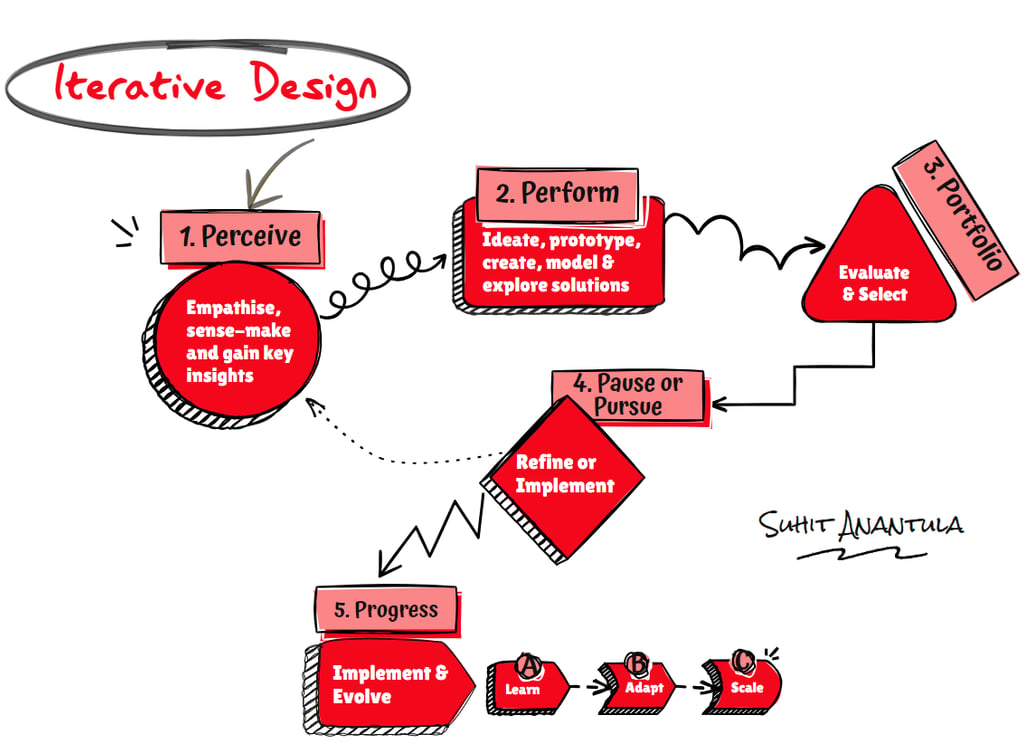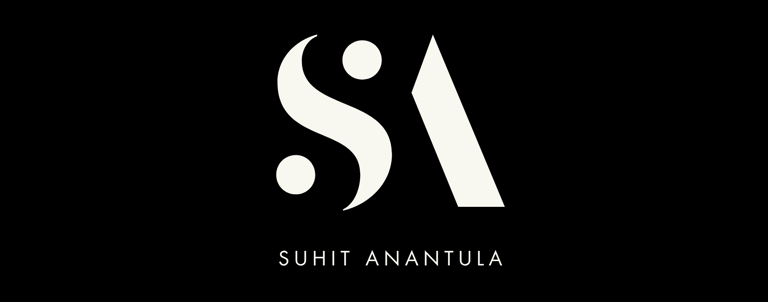Iterative Design
A Simple Yet Powerful Approach to Guiding the Design Process
A flexible, human-centred design approach that emphasises continuous learning and adaptation, empowering designers to navigate complex problems and create innovative solutions


A framework by Suhit Anantula
Five Key Stages
1) Perceive (Empathise, Research, Insights)
- Understand the problem or opportunity
- Gather information, empathise with users
- Identify key insights to guide the next steps
2) Perform (Ideate, Prototype, Test)
- Brainstorm, generate ideas
- Prototype and test concepts
- Explore and refine solutions
3) Portfolio (Evaluate, Curate, Select)
- Evaluate ideas and prototypes
- Curate a selection of promising solutions
- Choose the best ideas to move forward
4) Pause or Pursue (Decide, Refine, Implement)
- Decide whether to iterate or implement
- Refine solutions or scale them up
- Make strategic decisions about next steps
5) Progress (Learn, Adapt, Evolve)
- Gather feedback, learn from failures
- Adapt and improve solutions
- Continuously grow and evolve designs
